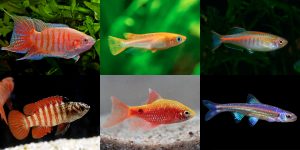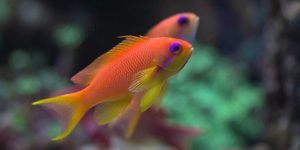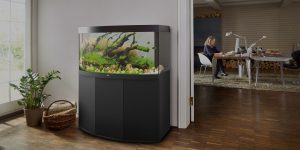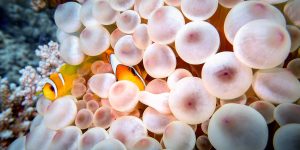KH, or carbonate hardness, is an important factor in maintaining stable pH levels in an aquarium. It refers to the concentration of bicarbonates (HCO₃⁻) and carbonates (CO₃²⁻) in the water, which act as a buffer against pH changes. Here’s how KH and pH are interconnected:
Role of KH in pH Stability
- Buffering Capacity:
- KH stabilizes the pH by neutralizing acids that are introduced into the water, whether from biological processes (e.g., fish respiration, waste, or decaying organic matter) or external sources (e.g., added fertilizers).
- Higher KH levels mean the water can resist changes in pH more effectively.
- Preventing pH Crashes:
- In low-KH environments, acids can quickly lower the pH, leading to a pH crash, which is harmful to fish and other aquatic life.
- Adequate KH ensures gradual pH changes, giving aquarists more time to react to potential issues.
- Carbon Dioxide (CO₂) Dynamics:
- KH also interacts with CO₂ in the water. In planted aquariums, CO₂ injection can lower pH, but a sufficient KH level helps maintain pH within a manageable range.
How KH Affects pH
- High KH: Leads to a stable and typically higher pH. The buffering system prevents acids from significantly lowering the pH.
- Low KH: Makes the pH more susceptible to fluctuations. Even small amounts of acid can cause significant drops in pH.
How pH Affects KH
While KH is primarily a factor influencing pH, the relationship can be cyclical:
- Biological activity and chemical processes (like photosynthesis and respiration) can alter the carbonate and bicarbonate levels in the water, indirectly affecting KH and pH.
Maintaining Proper KH Levels
- Test Regularly: Use a KH test kit to monitor levels. A KH of 4–8 °dKH (degrees of carbonate hardness) is generally ideal for most freshwater aquariums.
- Adjust KH:
- To increase KH, add a product like Seachem Alkaline Buffer or crushed coral.
- To lower KH, dilute with reverse osmosis (RO) or distilled water, though this should be done cautiously.
Understanding KH and its buffering role is crucial for maintaining a healthy and stable environment for your aquarium’s inhabitants.
Need help with maintaining a healthy and stable environment in your own aquarium? Give us a call to find out how we can assist with hands-on fish tank maintenance and servicing.






